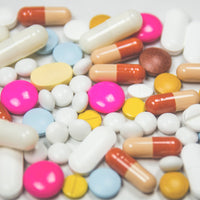In this video, Dr. Jim, ADHD specialist and founder of FastBraiin, answers the question,
"Does my child have ADHD?"
The following is a transcript of the video above,
Parents often ask, "Does my child have ADHD?" They usually want a quick answer, but it's not as easy to make the diagnosis as most people commonly think.
My first response is not to find out if ADHD is present, it's to find out what "other" things might be present. I want to know if there is anything else your child might have. Is there a thyroid problem? Is there an issue with low iron, or with vitamin d deficiency, a dietary problem, or do they have issues with sleeping, or even having subtle seizures?
These problems go on and on and on, and should you be worried about it? Yes, you should be worried about it.
That's not something a quick computer test can give you, nor an untrained or unequipped provider. You need a good, complete, neurological workup by a medical or health provider that understands ADHD and sees it regularly. They need to really be hands-on, asking you the right questions to get the right feedback.
For instance, we had one child that was very low in vitamin D and very hyper. We put him on vitamin D and that was the end of his problems. He's making A's in school now.
We had another one who couldn't' pay attention. Why? because he couldn't hear well. We got his hearing checked, and low and behold, he's doing better now.
For both of these kids, their "ADHD" was not really ADHD. They were experiencing the symptoms of ADHD without the underlying condition of ADHD. Low vitamin D and the inability to hear produced what typically might pass for an ADHD diagnosis.
A lot of people think that ADHD is a visual or auditory processing issue.
I personally have an auditory learning disability, so if I have to sit and take notes and someone is talking quickly, I can't get the notes down. And if I can't get the notes down, I'm not going to focus, and if I'm not going to focus I must have an attention problem. No, I don't have an attention problem, it's just that I can't pay attention because you're going too fast for my brain to pick it up.
So there are lots of issues that go into making an ADHD diagnosis. There are what we call DSM-V criteria for mental health disorders and ADHD, and there is the impulsive type, the inattentive type, and the combined type. To me, it's all in the same bucket.
You see articles, and everyone talks about how people have the different types. Well, the inattentive type came along because of people like me. I'm quiet and can sit still, but my brain is going 90 miles an hour. The hyper type, the ADHD type, that type anyone can make that diagnosis.
It was the hyper type that came along first. Matter of fact, when I was coming along, it was called minimum brain dysfunction. How about that for a diagnosis? (That'll sure brighten your day!)
We understand that it is difficult to make the diagnosis of ADHD, and we also understand that it is greatly overdiagnosed. One major reason is that anyone on a cup of coffee, Adderall, or Ritalin, can focus better.
So is it ADHD, or is it a focusing issue, a learning issue, a comorbidity of anxiety and depression (which also can mask for ADHD), or even a sleep issue. The bottom line is that I can't give you a quick answer to the whether or not your child has ADHD.
Here's what I know. If you or anyone else really wants to tell you that your child has ADHD, they can find a way, because you can fill out the form or the teachers can fill out the forms, they can make the forms say whatever they want them to say.
You have to step in and mediate a lot of the over-diagnosing. You need to get into your child's life and really assess his or her physical and mental condition, and what the behavior is like both at home and at school.
Be careful with making the diagnosis, but if your child is diagnosed, understand it and understand how it impacts your child.




